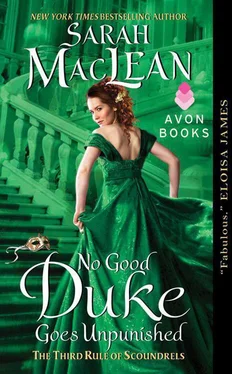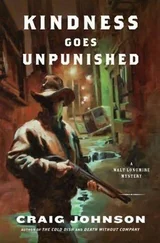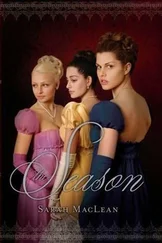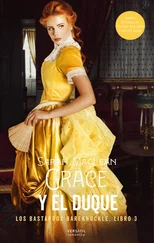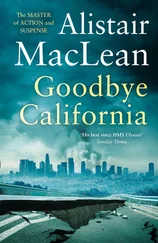The clock began to chime midnight, and Temple began moving faster.
Don’t do it , he willed her. Don’t do this to yourself.
“For too long, I have allowed you to believe that William Harrow, the Duke of Lamont, was a killer.”
He stopped at the words, at the sound of his name and title on her lips, at the gasps and shock rolling through the crowd as though they were thunder.
And still, the clock chimed.
She lifted her hands to the mask, untying the ribbons. Finishing her announcement. “But you see, he is no killer. For I am very much alive.”
He couldn’t reach her.
She removed the mask, and sank into a deep curtsy at the feet of the Duchess of Leighton. “My lady, forgive me for not introducing myself. I am Mara Lowe, daughter of Marcus Lowe. Sister to Christopher Lowe. Thought dead for twelve years.”
Why would she do it?
She met his gaze through the crowd. Saw him.
Did she not always see him?
“Not dead. Never dead,” she said, sadness in her gaze. “Indeed, the villain of the play.”
The last bell of midnight echoed in the silence that followed the announcement, and then, as though they’d been set free, the crowd moved, exploding into excitement and scandal and madness.
She turned and ran, and he couldn’t reach her.
Gossip and speculation exploded around him. He heard it in snippets and scraps.
“She ruined him—”
“—how dare she!”
“Using one of us!”
“Ruining one of us!”
This was it . . . what he’d thought he wanted for her. What he’d wished for in the dead of night on the street outside his home all those nights ago. Before he’d realized that her ruination was the last thing he wanted. Before he’d realized he wanted her. He loved her.
“That poor man—”
“I always said he was too aristocratic to have done any such thing—”
“Aye, and too handsome as well—”
“And the girl!”
“The devil herself.”
“She’ll never be able to show her face again.”
She’d ruined herself. For him.
Only now, once he had it, once he heard the loathing in their voices, he hated it. And he hated them. And he had half a mind to battle the entire room.
He’d battle all of Britain for her if he had to.
A hand came down on his shoulder. “Your Grace—” He turned to face a man he did not know, all good breeding and aristocratic bearing. Hating the title on his lips. “I’ve always said you didn’t do it. Join us for a game?” He indicated a group of men around him, and nodded toward the card rooms off the ballroom.
This was it . . . the goal for which he’d wished.
Acceptance.
Absolution .
As she’d promised.
As though none of it had ever happened.
Killer Duke no more.
But she wasn’t there. And it was all wrong.
He turned away from his title. From his past. From the only thing he’d ever wanted.
And he went after the only thing he’d ever needed.
She should have left immediately.
He was trapped in the ballroom with all of London hoping to reconcile, and she could have outrun him. She had meant to. But she couldn’t bear the thought of never seeing him again.
And so she stood in the shadows outside his town house in Temple Bar, blending into the darkness, promising herself that she would only look. That she wouldn’t approach him.
That she’d leave him. Redeemed.
She’d given him everything she could.
She’d loved him.
And that, plus one short glimpse of him in the night, on gleaming cobblestones, would be enough.
Except it wasn’t.
His carriage clattered down the street at breakneck speed, and he leapt from inside before it came to a stop, calling up instructions to the driver. “Get to the Angel. Tell them what’s happened. And find her.”
The carriage was off before he’d entered the house, and she held her breath in the darkness, promising herself that she wouldn’t speak. Drinking him in—the height and breadth of him. The way his hair fell in disheveled waves on his brow. The way his whole body hovered on the edge of movement as he extracted his key and opened the door.
But he did not enter; instead, he stilled.
And turned to face her, peering into the shadows.
He couldn’t see her. She knew it. And still, he seemed to know she was there. He stepped into the street. “Come out.”
She could not deny him. Refused to. She stepped into the light.
He exhaled, her name a white whisper in the cold. “Mara.”
She shook her head. “I didn’t mean to come. I shouldn’t have.”
He came toward her again. “Why did you do it?”
To give you your life. Everything you wanted.
She hated the words even though they were the truth. She hated that they represented something she was not. Perfection.
So she settled on: “It was time.”
He was in front of her then, tall and broad and beautiful. And she closed her eyes as he raised his good hand to her face and stroked his fingers across her cheek.
“Come inside,” he whispered.
The invitation was too tempting to deny.
Once the door was closed behind them and she was at the foot of the staircase, he spoke again. “The last time you were here, you drugged me.”
A lifetime ago. When she thought she could make a stupid arrangement with no repercussions. When she thought she could spend weeks with him without coming to know him. To care for him. “The last time I was here, you scared me.”
He started up the stairs to the library where she’d left him unconscious. “Are you scared now?”
Yes.
“As I am without my laudanum, I don’t think it’s relevant.”
He stopped. Turned back to look down at her. “It’s relevant.”
“Do you wish for me to be scared?”
“No.”
The word was so firm, so honest, that she couldn’t help herself. She followed him up the stairs, as if on a string. He did not stop at the library, instead climbing the next set of stairs, up into the darkness. She hesitated at their foot, struck by the keen sense that if she followed him, anything could happen.
And then struck by the keen realization that she didn’t care.
Or, rather, that she might want it to happen.
How had this man consumed her so quickly? How had she gone from thinking of him as the enemy to thinking of him as something infinitely more terrifying in mere weeks?
How had she come to love him?
She could not stop herself. She followed him up to darkness. Up to the unknown. At the top of the stairs, he lit a candle and moved to a large mahogany door.
She really should speak.
“I think it best if I speak to your newspaperman,” she started up again. “Tell him the entire story—as was our agreement—and then leave you in peace, your perceived sins absolved. In fact,” she babbled, “I should really leave you now. I don’t belong here.”
He grasped the handle and turned to face her, the golden light of the candle flickering over his handsome face. “You’re not going anywhere until we speak.” He opened the door and let her enter before him.
She came up short just inside the room. “This is a bedchamber.”
He set the candle down. “Indeed it is.”
And what a chamber it was, utterly masculine with its heavy oak and its dark wall coverings and books everywhere—piled on tabletops and in one of the chairs by the fireplace, and stacks around the posters of the bed—
The massive bed.
“This is your bedchamber.” She stated the obvious.
“Yes.”
Of course he had a massive bed. He needed to fit in it. But this one rivaled the Bed of Ware.
Читать дальше
